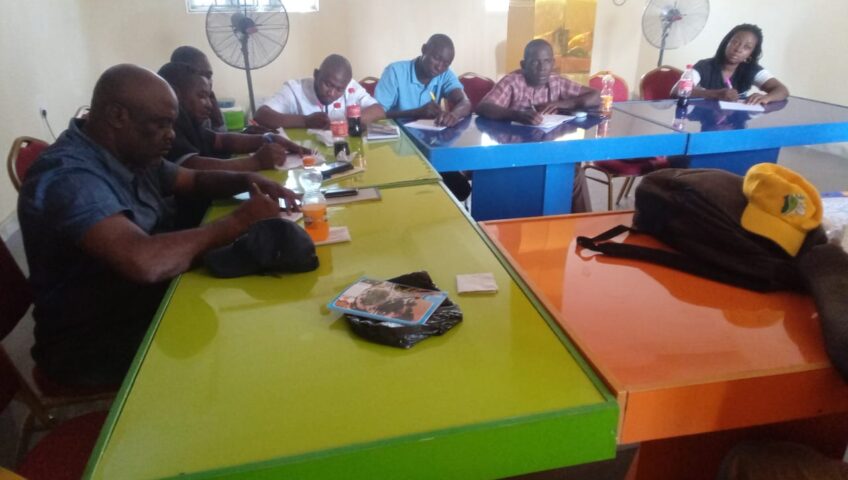The Sasakawa Africa Association (SAA) in Nigeria recently trained 10 extension agents on cassava seed production and cassava weed management techniques in Benue state. The training was organized within the framework of the Building an Economically Sustainable Integrated Cassava Seed System Phase 2 (BASICS-II) project of the International Institute of Tropical Agriculture (IITA), which SAA-Nigeria is implementing in Benue and Nasarawa State.
The BASICS-II project is using a systems approach to offer farmers access to clean, disease-free, and high-yielding cassava planting materials. Part of the project’s strategy is to establish cassava seed entrepreneurs linked to early generation seed producers who are connected to breeder seed producers and breeding programmes.
SAA is therefore incubating these CSEs in Benue and Nasarawa states and they are generating income and creating employment from the sales of cassava stems. Under the project, 10 cooperative societies have established more than 50 hectares of cassava seed fields across various local governments in the two states. The establishment of more fields for the 2024 season is ongoing.
The Country Director for SAA-Nigeria, Dr Godwin Atser, explained, “The EAs being trained are expected to step down their training to help farmers who have taken to seed production increase yield and productivity and maintain seed fields that would meet the certification requirements of the National Agricultural Seed Council (NASC).”
He told the EAs that they are instrumental to the success the farmers and seed producers will record since they will act as guides and supervisors. He stressed that the seed producers must use only properly sourced foundation seeds, saying that the project targets the expansion of the use of improved seeds by farmers in the state.
The training covered the basics and guidelines of cassava seed production and how to use the Six Steps to Cassava Weed Management toolkit to ensure clean fields, quality stems, and high root yield.
According to Dr Samuel Wuese, Sasakawa BASICS II Consultant, “The EAs were exposed to good agricultural practices (GAP), the broad range of improved cassava varieties in Nigeria, pre-planting activities, planting methods, ratooning, pest and disease identification and control, weed management, and marketing of stems and roots. We also trained them on value chain extension delivery, collective market access, and record keeping.
“We expect the EAs to facilitate timely procurement of quality inputs by the farmer groups and ensure that farmers keep records of all their farm activities such as date of land preparation, planting, the quantity of inputs used, date of inputs used, pests and diseases infestations and measures taken, yield and income earned and so on”
One of the participants, Miss Mbazeden, described the training as beneficial and enriching.
The training, which was held at Ritz Gold & Suites, Makurdi, Benue State, was also attended by the State Coordinator of Sasakawa, Mrs Comfort Anum and the Director, Agricultural Extension and Risk Management, of the Bureau of Agricultural Development and Mechanisation, Mrs Veronica Igbana.

